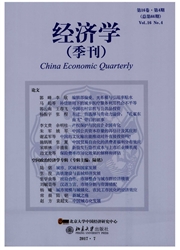

 中文摘要:
中文摘要:
本文试图从住房投资与婚姻缔结的关系入手,解释中国农村地区的"建房热"现象,从理论和经验两个层面深化已有的研究。本文通过对经典信号理论模型的修正,得到了一系列命题和推论,并利用2011年浙江、湖北、陕西的第一手调研数据进行了检验,最终得到以下结论:(1)中国农村的婚姻市场上存在信息不对称,为避免逆向选择,男方家庭通过住房投资传达自身"质量"的信号。(2)在保留效用较大、借款成本较高或男女性"质量"连续分布的条件下,不同"质量"的男方家庭会发出分离的住房信号——建造出不同档次的住房,女性则可以依据住房档次判断男方的"质量",据此形成匹配的婚姻缔结。
 英文摘要:
英文摘要:
In this paper we try to explain the"The Rural House-building Craze"by investigating the role of housing investment in marriage matching.We apply the Spence's signal model into the marriage market and refer it to housing investment as a signal to reveal male's unobservable quality.Whether the signaling will result in a pooling equilibrium or a separa-ting equilibrium depends on the reservation utility of getting married,the interest rate and the distribution of male and female's qualities.When a separating equilibrium forms,males and their families make different housing investment according to their unobservable qualities,and females can tell males'otherwise hidden quality through the appearance of their housing.Successful assortative matching can thereby be made.Using survey data from three provinces in China,we find a relationship between the timing of marriage and timing of housing investment,and a positive relationship between husband's pre-marital housing investment and wife's height and education.
 同期刊论文项目
同期刊论文项目
 同项目期刊论文
同项目期刊论文
 期刊信息
期刊信息
